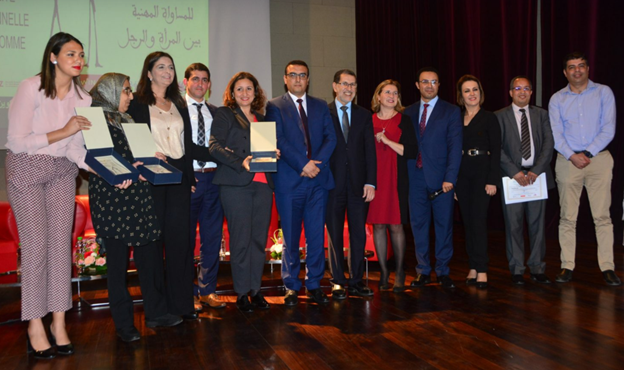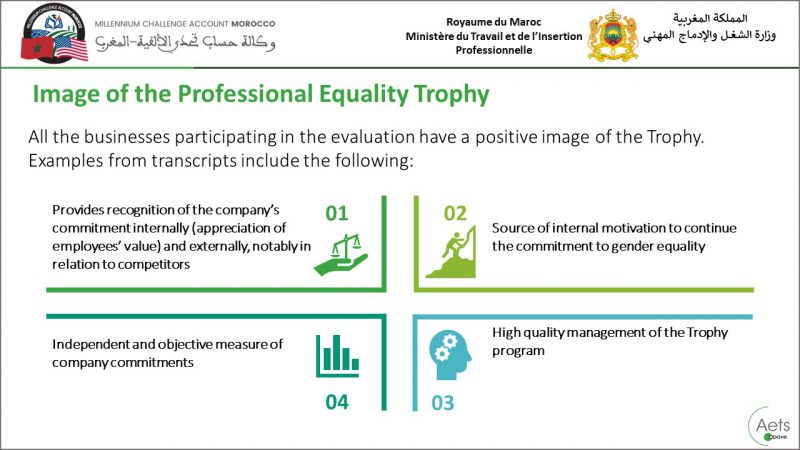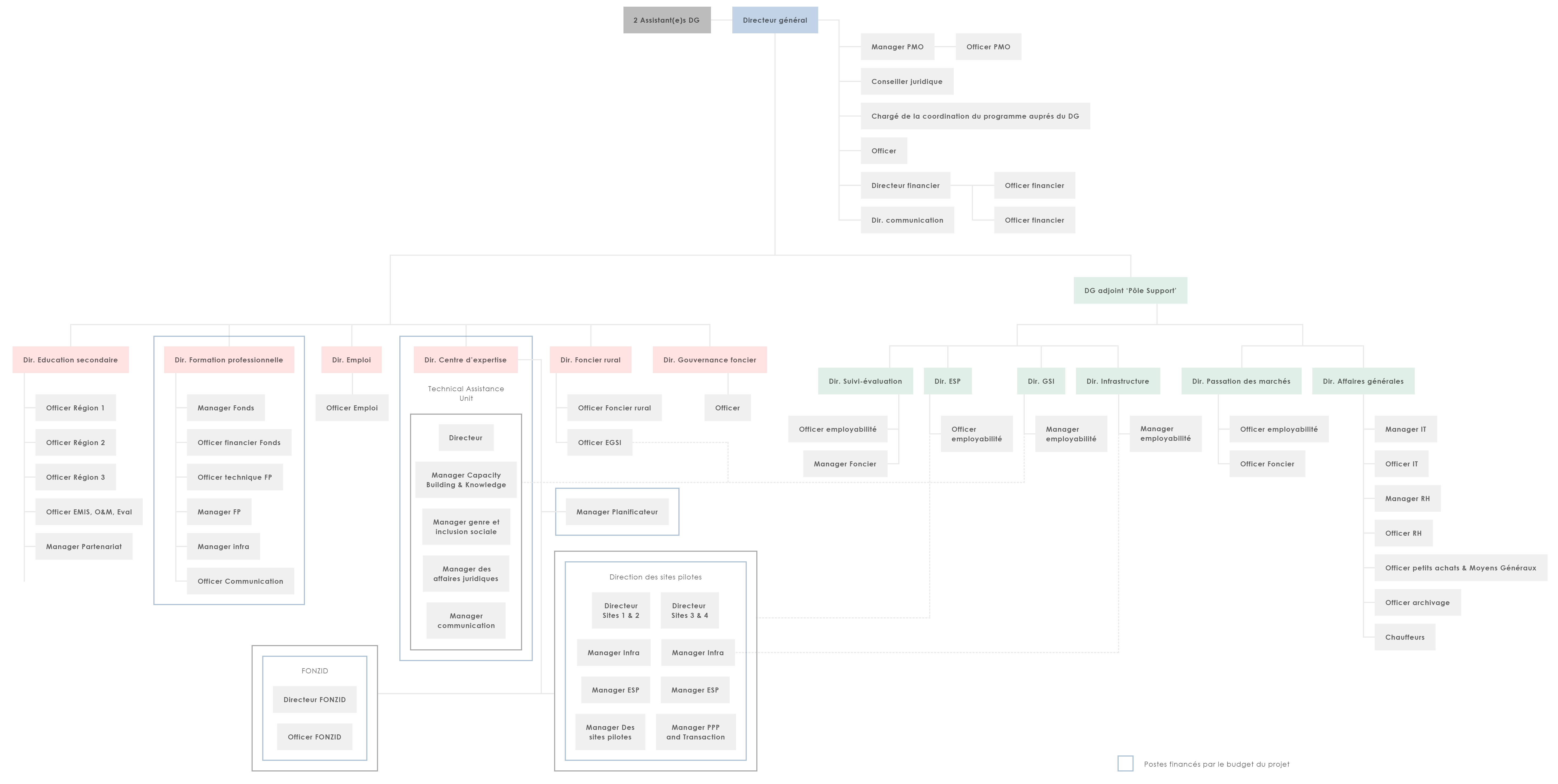Professional Equality Trophy
January 6, 2021
Sharon Rogers, Director, Gender and Social Inclusion-MCC
Morocco’s economic and political stability has helped the country achieve continuous economic growth and significant poverty reduction over the past decade. However while poverty trends are improving, Morocco has one of the lowest female labor force participation rates in the world. A 2020 Brookings Institution study (pdf) estimates that full and equal participation of women in the labor market could increase Morocco’s GDP by nearly one third.
MCC’s $450 million Morocco Employability and Land Compact is supporting the Moroccan Government’s goal to make its population more employable. As part of the compact, MCC is working with the Ministry of Labor and Professional Insertion (MTIP) to strengthen its annual Professional Equality Trophy, which supports and rewards the efforts of private sector companies’ to achieve gender equality in the workplace. MTIP’s Professional Equality Trophy recognizes achievements in three categories: workplace and corporate culture, management and human resources, and parenthood.

Morocco’s Ministry of Labor and Professional Integration (MTIP) presented the 2019 Professional Equality Trophy winners with awards at a March 2020 ceremony.
As part of the MCC compact, an evaluation of the Professional Equality Trophy was conducted between February and September 2020, which looked at governance, resources, the candidacy process, communications, and outreach efforts. The evaluation drew on companies’ past applications for the award, interviews with representatives of the public sector, and an online questionnaire with private companies and professional and trade union organizations.
Webinar Participants Agree on Need for More Action
To present the findings of the evaluation and solicit feedback from the business community, MCA- Morocco and MTIP hosted a webinar in late November 2020. Participants included Moroccan government officials, the Confédération Générale des Entreprises du Maroc (CGEM), trade union and association representatives, international partners including German development agency GIZ, and previous candidates for the Professional Equality Trophy, including those from the pharmaceutical and financial sectors.

Morocco’s business community has had a positive response to the Professional Equality Trophy—an MCC-supported initiative that aims to create a more gender inclusive workforce in the country.
Madame Sabah Chraibi, Member of MCA-Morocco board and National President of the ESPOD Association, a women’s rights association, opened the webinar by stressing that “we need to be able to achieve equality of opportunities, equality at the professional level, equality in pay, to break the glass ceiling [for women].”
Salima Admi, Director of Labor, MTIP concurred, stating: “With the support of MCC and MCA-Morocco … the Ministry wishes to make the trophy more sustainable by involving more partners.” In subsequent discussions, CGEM, one of the largest business confederations in Morocco and a member of the MCA’s board, committed to communicating more widely about the Professional Equality Trophy and encouraging its members to apply.
The evaluation revealed the two main motivations for companies in applying for the Professional Equality Trophy: To self-evaluate their gender related policies, and to position themselves relative to their competitors. Companies prioritized the possibilities of receiving gender training and technical assistance over financial incentives for their efforts. Two participants spoke particularly to these findings.
Madame Zakia Hajjaji, from the Moroccan Human Resources Association recalled several high-profile studies demonstrating that gender equality in staffing is beneficial for companies. For example, she cited the 2015 McKinsey study that found that companies in the top quartile for gender diversity in their staff were 15 percent more likely to have returns above their national industry median, across industries. While the Moroccan business community largely recognizes these studies, she pointed out, they still need to act on the data.
Similarly, Madame Touria Lahrach from the Democratic Confederation of Labor reflected: “The gender trophy … is pushing us as trade unions, companies, and the government to reflect on the representation of women in positions of responsibility and decision-making within companies.”
The next step in MCA-Morocco’s work with the Ministry of Labor is finalizing an assessment of how COVID-19 has impacted women’s participation in the Moroccan labor force and enterprises’ commitments to promoting gender equality. Assistance to improve the trophy application process and the structure of the trophy awards program are also underway to make the program more sustainable.
The Professional Equality Trophy rewards outcomes. Through the partnership among MCC, the Moroccan government, the business community, and unions, the Professional Equality Trophy is becoming a more attractive tool to encourage companies to hire and promote more women, through inclusive, equitable practices. This initiative is a great example of the impact that MCC’s women’s economic empowerment (WEE) focused efforts can have.




